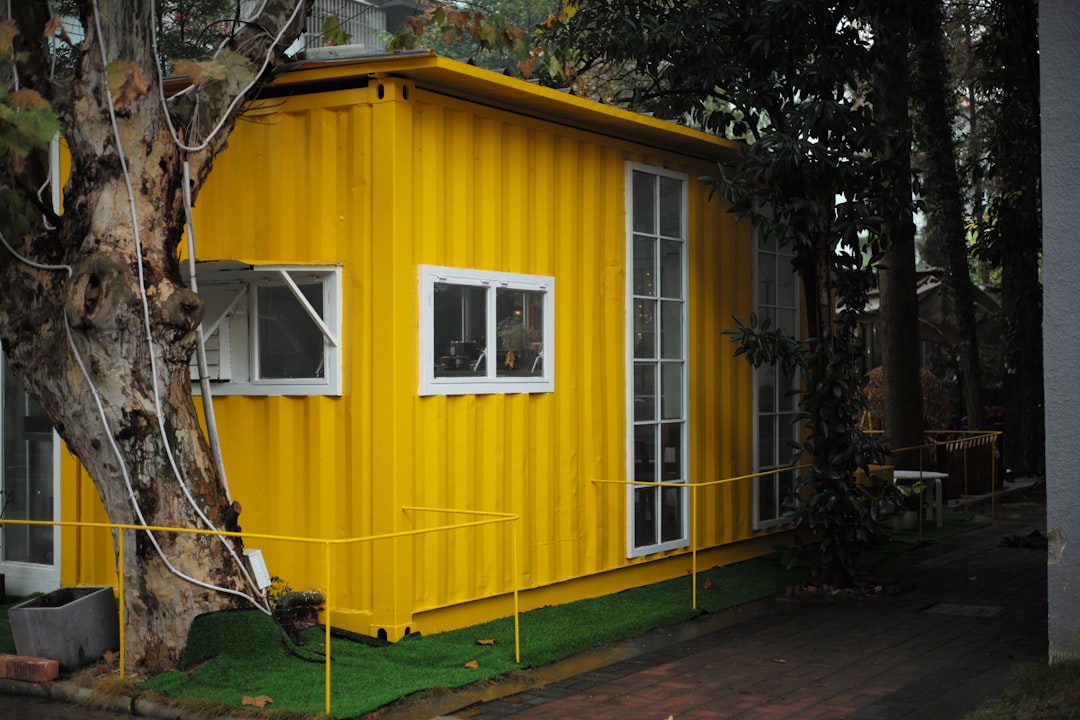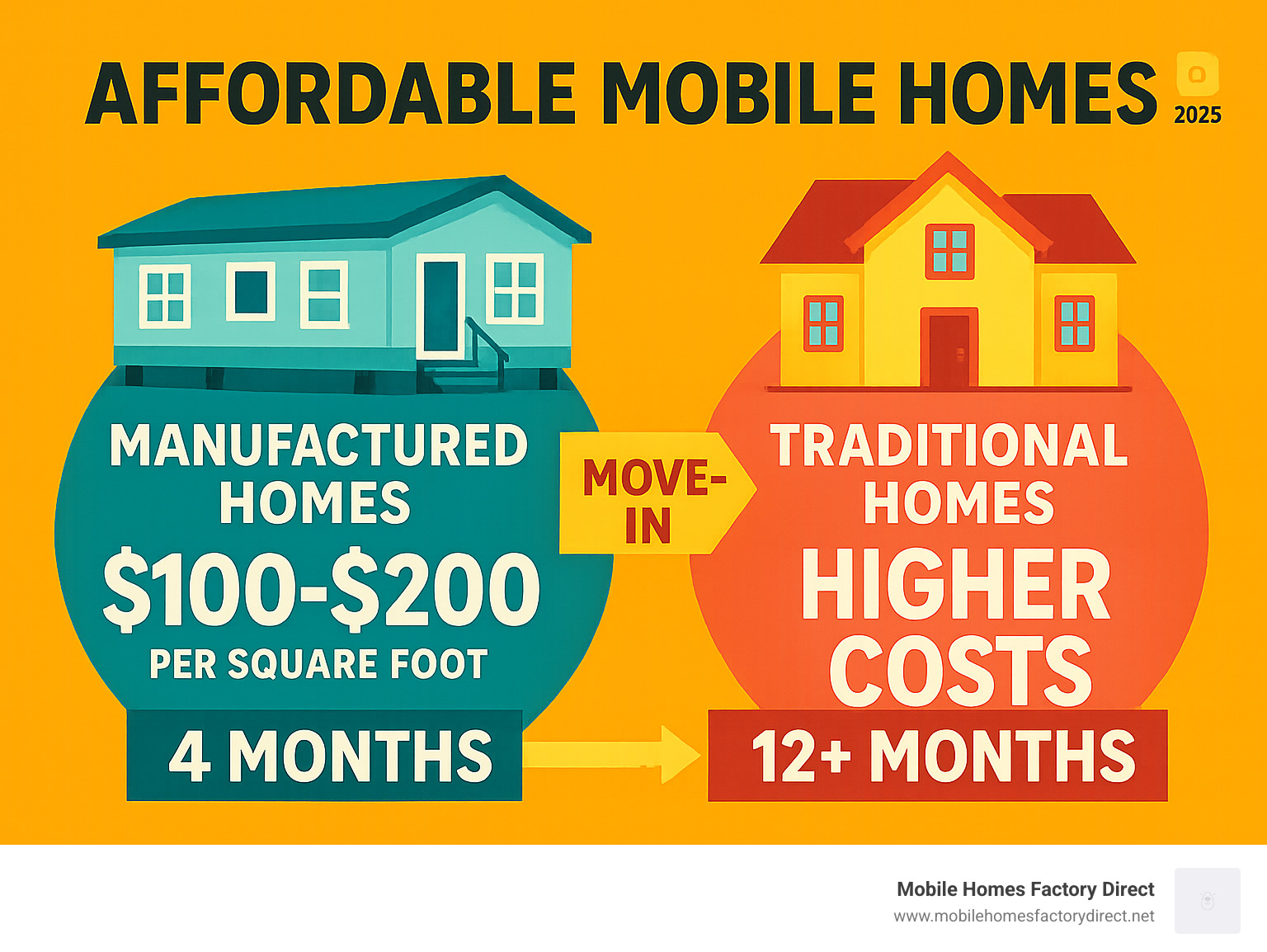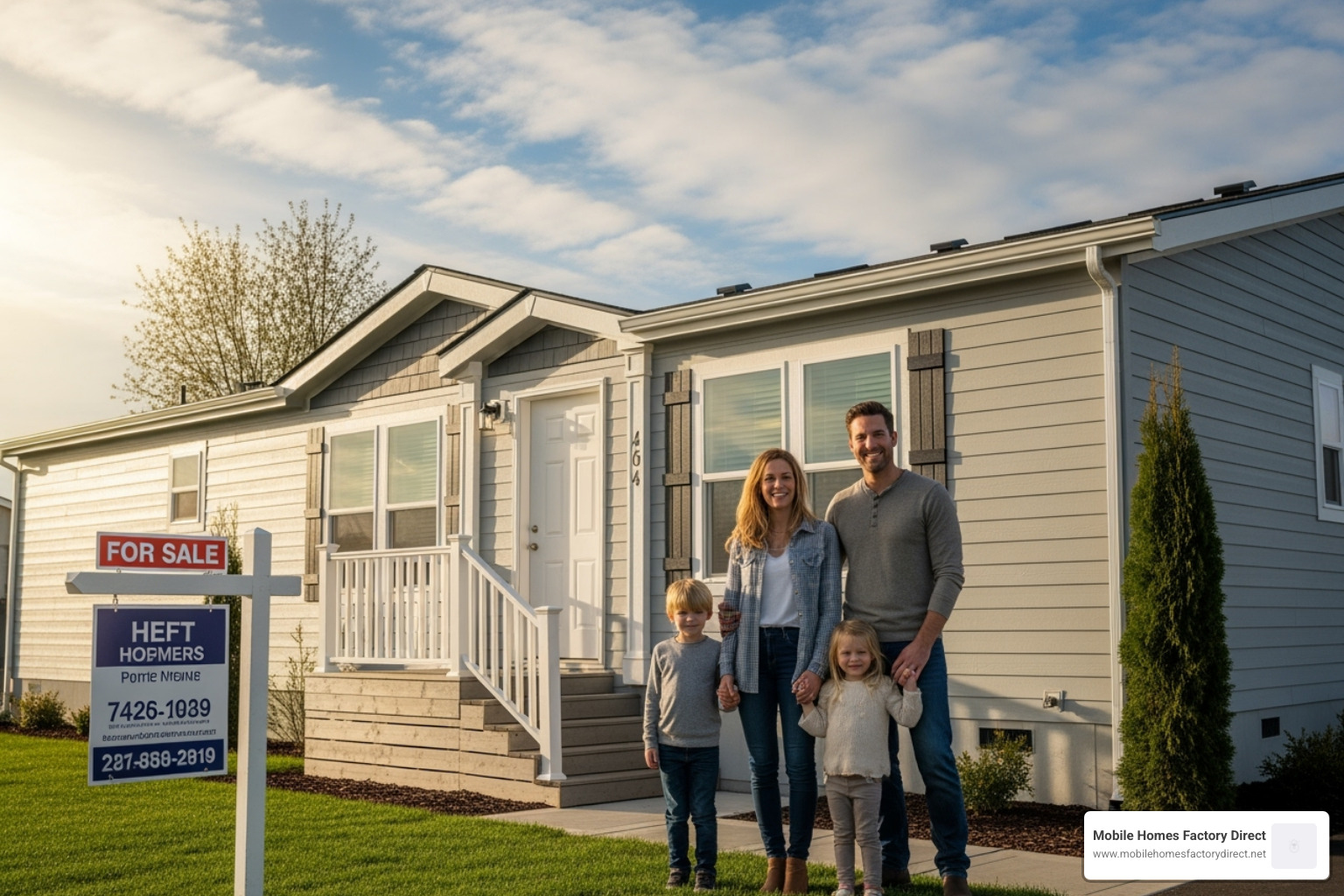Smart Living: Discovering Affordable Manufactured Homes
Explore affordable mobile homes! Learn about quality, savings, modern designs & financing. Your smart path to homeownership awaits.
Why Affordable Mobile Homes Are Revolutionizing Homeownership
Affordable mobile homes are revolutionizing homeownership for budget-conscious buyers. Offering quality housing without the traditional price tag, these homes provide a modern, comfortable living space while saving you up to 50% on housing expenses. In the San Antonio area—including Von Ormy, Somerset, Atascosa, Macdona, and JBSA Lackland—buyers are turning to these homes for a faster, budget-friendly path to ownership that still delivers long-term value.
Key Advantages:
- Cost: 30-50% less than site-built homes, with prices from $50,000-$160,200.
- Speed: Factory-built in days, move-in ready in about 4 months.
- Quality: Built to strict HUD standards for safety and energy efficiency.
- Financing: Flexible options are available, including FHA and personal loans.
Gone are the days of sacrificing style. Today’s manufactured homes feature open floor plans, energy-efficient appliances, and customization options that rival traditional housing. The stigma is fading as buyers recognize that modern factory-built homes use precision engineering and quality materials to deliver lasting value. With proper maintenance, these homes can last 30-55 years, offering a smart path to homeownership without compromise.
Decoding the Terminology: Mobile, Manufactured, and Modular Homes
Understanding the terms “mobile,” “manufactured,” and “modular” is crucial, as the differences affect financing, property taxes, and resale value. Each type of factory-built home adheres to different building codes that determine its legal classification and construction quality. For a deeper dive into different housing options, check out this helpful guide on tiny houses and alternative living solutions.
Here’s how the three main types stack up against each other:
| Feature | Mobile Homes (Pre-1976) | Manufactured Homes (Post-1976) | Modular Homes |
|---|---|---|---|
| Building Codes | Built to varying state/local codes, often less stringent | Built to federal HUD Code (Housing and Urban Development) | Built to state and local building codes, same as site-built homes |
| Foundation | Often on non-permanent foundations, designed for mobility | Built on a permanent steel chassis, can be placed on various foundations | Built in sections, assembled on a permanent foundation (crawl space, basement) |
| Property Classification | Typically personal property (like a vehicle) | Can be personal property (if on leased land) or real property (if on owned land and permanently affixed) | Always real property |
| Customization | Limited | More options than older mobile homes, but less than modular | Extensive, comparable to site-built homes |
What Are Manufactured Homes?
Today, the term affordable mobile homes usually refers to manufactured homes. The key distinction dates to June 15, 1976, when the U.S. Department of Housing and Urban Development (HUD) established a national building code. Unlike pre-1976 “mobile homes,” every manufactured home built since must meet these strict federal standards for structural integrity, energy efficiency, and fire safety.
Built in a controlled factory environment on a permanent steel chassis, these homes are transported to your site, which streamlines construction and reduces costs. They come in several sizes:
- Single-wide homes: Compact and budget-friendly, ideal for individuals or small families.
- Double-wide homes: Two sections joined on-site create a spacious home with modern amenities. For great value, explore used double wide mobile homes for sale.
- Triple-wide homes: The largest option, offering expansive layouts and maximum design flexibility.
How Do They Differ from Modular and Mobile Homes?
The key differences affect your mortgage options, property taxes, and long-term investment.
-
Mobile Homes (Pre-1976): Built before the national HUD code, their quality varies. They were designed for mobility and are often considered personal property, which can limit financing and appreciation.
-
Manufactured Homes (Post-1976): Built to the federal HUD code, ensuring consistent quality. They are designed for a single move to a permanent site. When placed on owned land and a permanent foundation, they can be reclassified as real property, opening up better financing and appreciation potential.
-
Modular Homes: Built in sections to the same state and local codes as site-built houses. They are assembled on a permanent foundation (like a basement or crawl space) and are always considered real property. They offer extensive customization and appreciate similarly to traditional homes. Explore options with our guide on modular home floor plans.
The investment outlook differs greatly. Manufactured homes on leased land may depreciate, while those on owned land can appreciate. Modular homes generally appreciate like site-built homes. Understanding these distinctions is key to choosing the right home for your financial goals.
The Financial Advantage of Affordable Mobile Homes
The financial case for affordable mobile homes is compelling. Beyond the lower sticker price, you’ll find significant savings in construction time and long-term investment potential that many people overlook.
What are the Typical Costs of Purchasing Affordable Mobile Homes?
A single-wide manufactured home averages around $86,300, and a double-wide is about $160,200—a fraction of the $417,700 median price for a traditional home.
Your total investment will also include:
- Site preparation: Clearing, leveling, and drainage.
- Transportation and permits: Fees vary by location.
- Utility hookups: Water, sewer, electricity, and gas.
- Foundation: Costs depend on the type you choose. Learn more about Mobile Home Foundation Types.
- Installation: Typically $1,500 to $3,000, but can be more for complex setups.
Even with these costs, total savings often reach 30-50% compared to site-built homes. Our Mobile Home Pricing Guide provides a full breakdown.
How Do They Compare to Traditional Housing?
The cost per square foot for manufactured homes ($100-$200) is significantly lower than for traditional construction, often resulting in up to 50% total savings. The construction timeline is another major advantage. A manufactured home is built in a factory in 2-7 days and is typically move-in ready in about 4 months, compared to 7-12+ months for a site-built home.
The investment potential is stronger than many believe. A manufactured home on land you own becomes real property and can appreciate in value, similar to a traditional home. In contrast, homes on leased land are personal property and may depreciate. For a deeper comparison, our guide on Buying a Mobile Home Instead of a Regular Home covers these factors in detail.
Navigating the Purchase: Financing, Legalities, and Location
Buying an affordable mobile home involves three key steps: securing financing, understanding legal requirements, and choosing a location. We’re here to guide you through the process.
Financing Options for Affordable Mobile Homes
Financing your affordable mobile home is more accessible than you might think, even with credit challenges. We specialize in helping buyers with all credit types.
- Traditional Mortgages: Available if your home is permanently attached to land you own, often with better rates and terms.
- Government-Backed Loans: The FHA Mobile Home Financing program is a great option, potentially requiring as little as 3.5% down. Our FHA Mobile Home Financing guide has details. Canadian buyers can look into CMHC loans.
- Personal Loans: A flexible option for bridging financial gaps, though rates can be higher.
- Chattel Mortgages: These loans are designed for homes treated as personal property (not permanently attached to land) and use the home itself as collateral.
Don’t let credit issues stop you. We offer specialized programs for various situations. Explore our resources on Financing For Mobile Homes With Bad Credit, our No Credit Mobile Homes Ultimate Guide, and our Introduction to Mobile Home Financing to find your best path forward.
Essential Legal Requirements and Regulations
Understanding the legal requirements upfront will ensure a smooth process. Key regulations include:
- HUD Code Compliance: Every U.S. manufactured home built after June 15, 1976, must have a red HUD tag certifying it meets federal standards. Canadian homes must meet CSA standards.
- Local Zoning Laws: Research local rules on setbacks, site coverage, and permitted home styles before you buy.
- Permits and Inspections: You’ll need building, electrical, and plumbing permits. Licensed professionals typically handle this process.
- Anchoring and Tie-Downs: Essential for safety, modern regulations require tensioned mobile home anchors and tie downs to secure your home against severe weather.
Site Planning and Location Considerations
Where you place your affordable mobile home is a critical decision affecting your lifestyle and investment.
- Land Lease vs. Purchase: Leasing a lot in a mobile home community offers lower upfront costs and shared amenities. Explore options in our guide to Top Mobile Home Parks in New Braunfels. Purchasing your own land provides more control and appreciation potential but involves higher initial costs.
- Rural Land Placement: Offers privacy and space but requires planning for wells, septic systems, and utility connections.
- Foundation Types: Your choice of foundation—from budget-friendly piers to permanent concrete slabs—impacts your home’s stability and legal classification. Our Mobile Home Foundation Types guide explains the options.
- Utility Access: Confirm connections for water, sewer, and power are available at your site, or budget for alternatives like wells or septic systems.
Modern Living: Design, Efficiency, and Maintenance
Today’s affordable mobile homes are a far cry from the basic structures of the past. They combine sophisticated design, smart efficiency, and customizable features, often exceeding the quality of site-built construction thanks to the precision of the factory-building process.
Modern Designs and Customization
Customization is a key advantage of manufactured homes. Open-concept floor plans are now standard, creating bright, spacious living areas. You can compare manufactured homes floor plans to find your ideal layout.
High-end finishes like granite countertops, stainless steel appliances, and custom cabinetry are widely available. Exterior styles range from traditional farmhouse to contemporary, allowing you to create impressive curb appeal. Adding porches and decks improves outdoor living space and style; see examples of beautiful mobile homes with porches. You can also integrate smart home features, home offices, and other specialized spaces into your design.
Energy Efficiency and Sustainability
Modern manufactured homes are highly energy efficient, which means lower utility bills and a smaller environmental footprint. Many new homes earn ENERGY STAR® certification, guaranteeing they meet strict EPA guidelines for energy use.
Superior insulation, high-performance windows, and advanced weatherstripping result in significant utility cost savings, often between 30% and 50%. We are committed to offering affordable eco-friendly modular homes, many of which are solar panel ready for future renewable energy integration. For more ways to save, check out these energy efficiency tips.
Maintenance for Longevity
A well-maintained manufactured home can last 30-55 years. Consistent care protects your investment and ensures comfortable living. Key maintenance tasks include:
- Roof: Inspect annually for damage or wear to prevent leaks.
- Foundation & Skirting: Check that piers are level and skirting is intact to prevent moisture and pest issues.
- Siding & Windows: Clean siding regularly and check window and door seals annually to maintain energy efficiency.
- Plumbing & Electrical: Perform periodic checks to ensure systems are functioning safely.
- Marriage Lines: On multi-section homes, inspect and seal the connection points to prevent water intrusion.
Regular maintenance is the simplest way to ensure your home retains its value for years to come.
Frequently Asked Questions about Manufactured Homes
It’s normal to have questions about affordable mobile homes. After helping thousands of families, we’ve compiled answers to the most common ones.
Who builds the highest quality mobile home?
There isn’t one single “best” manufacturer; the key is knowing what to look for. A high-quality home will always have:
- HUD Compliance: This is a non-negotiable federal standard for all homes built after 1976.
- Strong Manufacturer Reputation: Look for companies with a long history of positive customer reviews.
- Quality Materials: Check for durable materials like half-inch Sheetrock, energy-efficient windows, and reliable appliances.
- Comprehensive Warranties: A good manufacturer stands behind their product with a strong warranty.
Visit showrooms, ask detailed questions, and trust your impression of the home’s construction.
Do mobile homes lose value?
This is a common concern, but the answer is nuanced. The myth of depreciation often comes from older, pre-HUD code homes or homes on leased land, which are considered personal property and can lose value like a vehicle.
However, when you own the land and your manufactured home is on a permanent foundation, it is classified as real estate. In this case, it can appreciate in value just like a traditional site-built home. Location, market conditions, and proper maintenance are the key factors that drive appreciation. To learn more about estimating value, see our guide on how to calculate modular home resale value.
How long do manufactured homes last?
Modern manufactured homes are built for longevity. With proper care and maintenance, a manufactured home can easily last 30 to 55 years or more. The controlled factory environment often results in highly consistent construction quality.
Regular maintenance is crucial. Simple tasks like inspecting the roof, checking the foundation, and addressing minor repairs promptly will significantly extend your home’s lifespan. Climate is also a factor, but modern homes are engineered to withstand regional weather challenges. A manufactured home is a durable, long-term housing solution.
Conclusion
As we’ve seen, affordable mobile homes have evolved into sophisticated, stylish, and energy-efficient housing solutions. They offer a clear path to homeownership with significant cost savings of 30-50% and much faster move-in times compared to traditional homes.
From customizable designs and modern amenities to flexible financing for all credit situations, today’s manufactured homes provide lasting value without compromise. They are a smart investment in a comfortable, quality lifestyle, built to last for decades with proper care.
At Mobile Homes Factory Direct, we believe everyone deserves a place to call home. We’re proud to offer the best homes at the best prices, with a simple process and financing for all credit types. We serve Von Ormy, Somerset, Atascosa, Macdona, San Antonio, JBSA Lackland, and communities across Texas, and we’ve seen countless families find that a manufactured home is their perfect long-term housing solution.
Ready to start your journey? Explore our available homes today! Your dream home is more affordable than you ever imagined.






